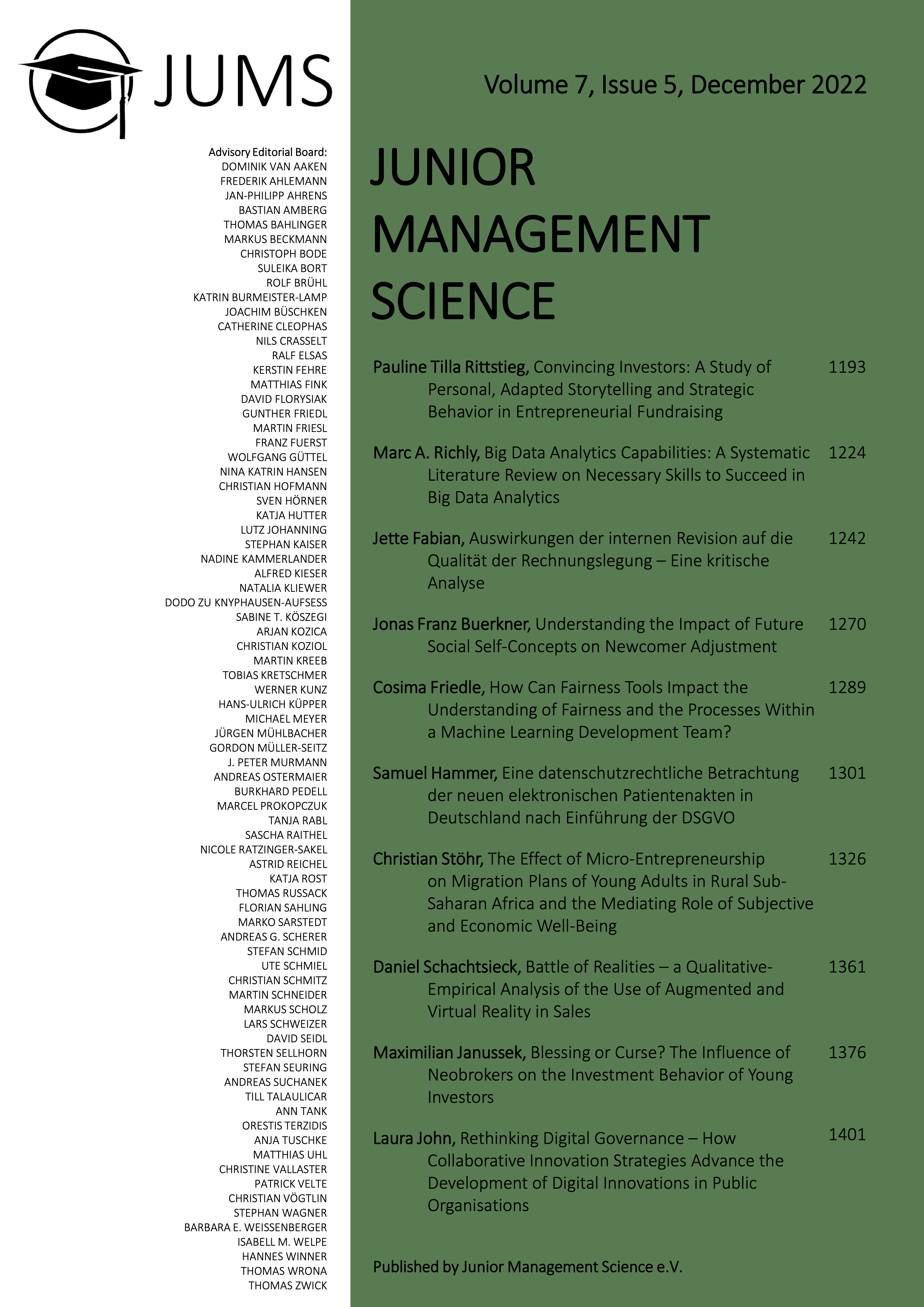Abstract
Digital innovations bear the potential to increase the efficiency and transparency of governments and create more accessible and user-centric public services. However, public organisations are facing several challenges in the development of digital innovations and the unique democratic requirements imply that digital services cannot simply be procured from private contractors. Hence, a new strategy called collaborative innovation appears to be a possible solution, but few institutional designs have been found to sustain collaborative innovation in the present governance system. Therefore, this thesis investigates the unexplored phenomenon of innovation fellowship programmes by conducting a diagnostic case study about Tech4Germany with a focus on the research question: How does the fellowship programme Tech4Germany contribute to the development of digital innovations in German public sector organisations? Interviews with participants of Tech4Germany revealed that fellowship programmes are a suitable institutional design for collaborative innovation as they create an attractive setting for tech experts and provide public employees a unique room to experience agile and user-centric approaches. In particular, mutual learning is stimulated, and the implementation resistance reduced.
Keywords: Collaborative innovation; Fellowship programmes; Public innovation; Digital transformation.

Dieses Werk steht unter der Lizenz Creative Commons Namensnennung 4.0 International.

